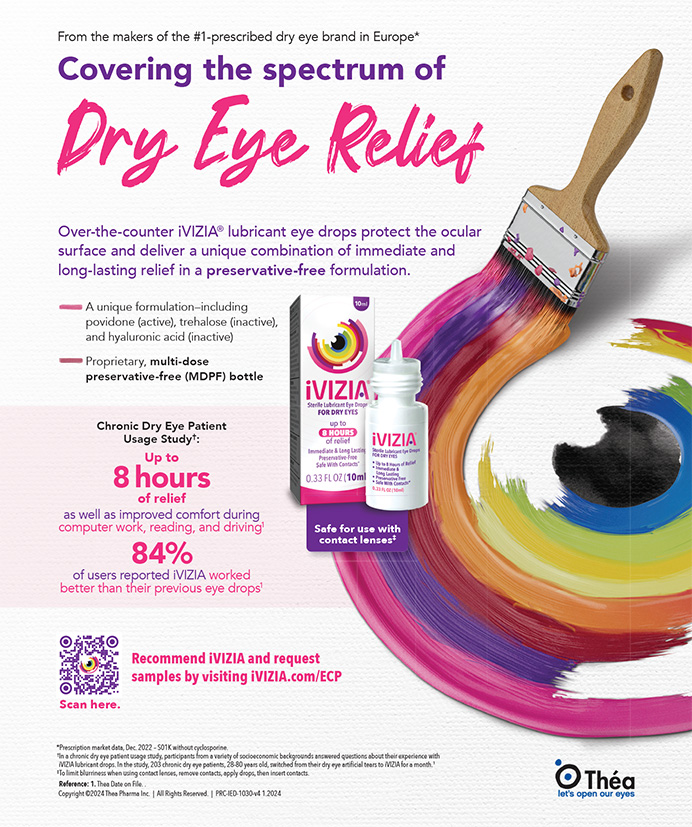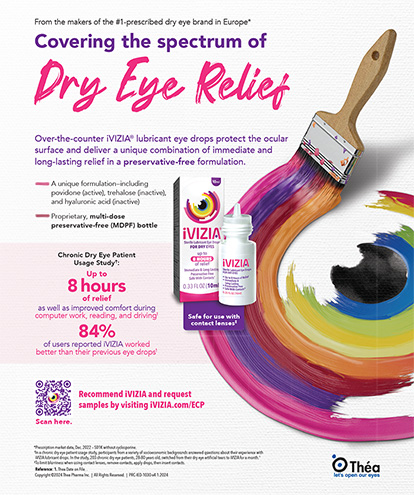What has been the greatest challenge of your career?
I am going through it right now, as academic medicine and medicine as a whole are changing. As a tenured professor at Duke University Eye Center, I see academic ophthalmology moving in a direction that concerns me. The obstacles of dealing with universitybased institutional review boards, grants and contracts negotiations, and high indirect costs have shifted industrysponsored clinical trials to the private sector. The growing restrictions at academic institutions have started to limit the corporate sponsorship of research and educational activities, communication with corporate representatives, and the receipt of drug samples. New policies on consulting relationships are being instituted that are controlling and limit faculty's activities and interactions with industry. All of these issues are changing the academic environment. I thank all of my colleagues and friends who have helped me navigate through this.
What are some of the most promising developments in anterior segment surgery?
Virtually every aspect of anterior segment surgery is currently witnessing innovative and even disruptive technology, including femtosecond lasers for cataract and corneal surgery as well as new drainage devices for glaucoma surgery. A clinical and research interest of mine has been the use of adhesive or sealant technology for many of these anterior segment procedures.
What advice do you have for residents and fellows considering a career in academic ophthalmology?
First, do not be afraid to ask stupid questions, because this is the opportune time to ask them. Second, do not be hesitant to pursue a creative or innovative idea. Finally, try to find a person/people in your program that you admire (senior resident, fellow, or faculty member) who can serve as your mentor and provide valuable advice and guidance throughout your training and career.
How do you balance your time between your professional duties, research, and personal life?
My parents instilled in me that family and health are priorities in life, so I always make the effort to spend quality time with my family. Although I have never taken a time management course, I do think it helps to have some sense of priority and organization for these responsibilities. Because of our busy schedules, which include my wife's radiology practice and my daughters' hectic after-school activities, my research and writing generally take place at night and on weekends. This means less sleep.
Having studied classical piano and martial arts for almost half of my life, I have learned the importance of balance, so I try to find time to engage in relaxing and enjoyable activities, whether it is DJing or drinking good wine (note: donations from Sinskey Vineyards and Jessup Cellars are always welcome).
What are some of the perks of being a consultant ophthalmologist for Duke men's basketball team?
Having gone to college and medical school at Duke, I have grown up with the basketball program here and had the good fortune to become personal friends with a lot of the players and coaches. This relationship evolved into my becoming the team's consultant ophthalmologist when I joined the faculty. Since we instituted an annual eye screening for all the players and coaches, their awareness of the importance of good eye health has increased. I have also had the privilege to build a special friendship with coach Mike Krzyzewski and his staff. Coach K has been a trusted mentor to me and has given me very valuable advice about my career and life in general. This collaboration helped me to establish the Duke Sports Vision Center of Excellence, which I hope can serve as a clinical, research, and teaching resource for collegiate/professional athletes and military personnel with eye injuries or diseases. I feel that I have another family at Cameron Indoor Stadium, which is something I treasure and value to the utmost degree.


